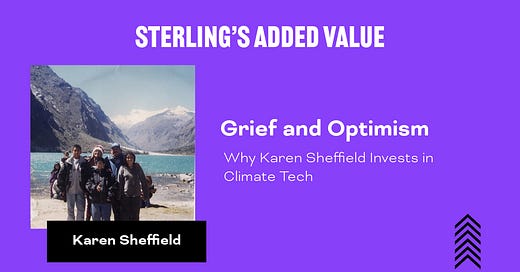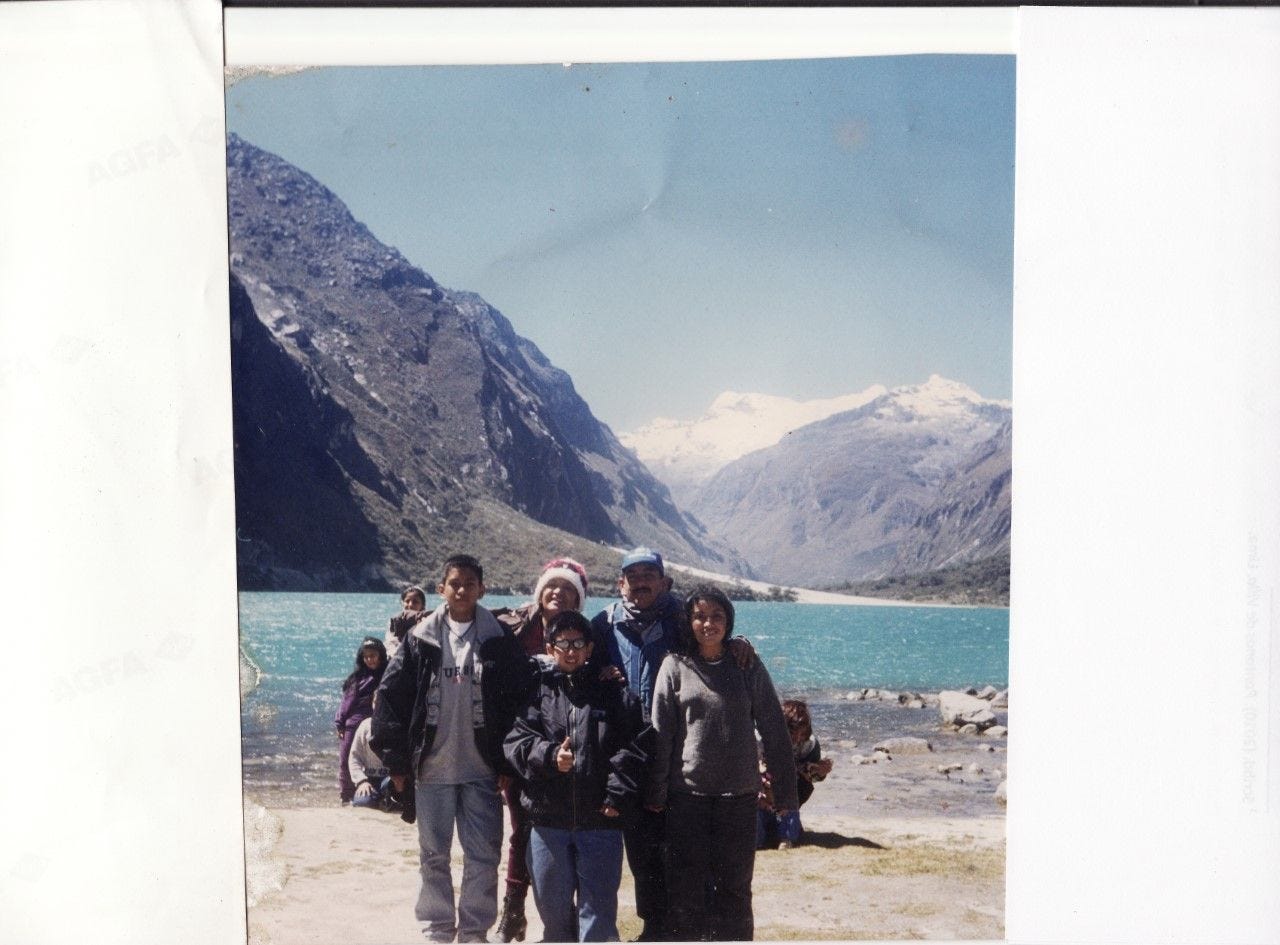Grief and Optimism: Why Karen Sheffield Invests in Climate Tech
“Climate change should stir something in you.”
Many of us can identify a fond memory of being outdoors with family and friends. It could be a carefree day on the beach, or an annual camping trip in the woods. It could be a long weekend skiing, or a casual afternoon hike in the local marshlands.
For Karen Sheffield of Pachamama Ventures, it’s a family trip to Pastoruri Glacier in Peru. “We were all together, having fun, like throwing snowballs at each other, just enjoying good food after a full day of activity,” she says. “It was that kind of vacation where you cry, you laugh…you feel it all.”
She still has a photograph of her family from that vacation—a precious moment in time for both her family and the planet. “My dad passed away 12 years ago,” she says. “He was an agronomist. His clients were farmers, right in the mountains of Peru. And the glacier in the background [of the photo], it’s really dissipating because of climate change. So in that picture, there are so many things that are lost and gone.”
As wildfires and heat waves continue to make headlines, the repercussions of climate change continue to expand. At best, everyone has experienced an unbearably hot week or two in their hometowns. At worst, those hometowns have been wiped out.
People all over the world mourn the loss of beloved family getaways, the future opportunities to visit natural wonders, or simply the chance to enjoy a snowy winter. The despair we feel over that change—the grief—can be paralyzing, even overwhelming.
But for some, that grief leads to action. And for Karen, that climate grief has taken form as optimistic investing.
Climate Change as a Theme, Not a Sector
In 2022 alone, investors deployed over $40 billion into climate tech solutions, and there is still a growing opportunity for more. The hydrogen industry alone is estimated to need an additional $540 billion in investment in order to reach net zero by 2050.
When the venture ecosystem talks about climate tech, we often consider it its own industry. But Karen believes climate tech is even broader than most people think.
“Climate change is a real, physical world problem,” she explains. “It will change everything from how we decide to commute to work, how we source food, how we think about health…it will touch it all. That’s why I don't like to describe climate tech as a sector. It’s more like a theme. It's not an industry that you get a job in. Every job will be impacted by climate.”
As a result, Karen doesn’t draw a line between hardware and software, although she understands why some still do: “There are newcomer investors to climate tech that have been B2B software investors for a long time. So the only way they invest is via software.”
Karen’s broader view of opportunities and approach to the climate sector is just the foundation of what makes her a uniquely apt early stage investor.
Bridging Academics and Venture Capital
Throughout her expansive career, Karen has scaled multi-million dollar enterprises into multi-billion dollar successes within companies like American Airlines, PepsiCo, and Visa. From designing go-to-market strategy to hiring and training associates, she has skill sets relevant to helping a startup build from the ground up.
And when it comes to climate tech, founders and their teams often need that extensive operator knowledge. “A lot of these founders end up being very technical, like spin-offs from universities,” Karen explains. “So they really need all that business know-how to go sell their solutions.”
Oftentimes, however, academics and VC investors don’t easily cross paths. “Investors are people that usually aren’t in their networks, so they don't have the first clue where to go and whom to pitch,” says Karen. “Even just the conversation is different from what they may be used to in the discourse of academia or research, when they’re interacting with other scientists and peers.”
While she may not have PhD-level knowledge of the technology itself, Karen has been enthusiastically educating herself on it all. “I spent so many hours on the weekend reading and learning about climate tech. I really want to understand the technologies and always stay abreast of what's going on in climate,” she says. And by staying on top of trends and emerging technologies in the climate space, she can provide even better active portfolio support.
Final Thoughts
VCs often claim to be passionate about changing the world. But I find that people who invest in climate change solutions are earnestly passionate about not just saving it, but improving it for everyone.
And they don’t just feel it’s a great way to make money—climate investors believe it’s a calling. A need to be optimistic about the future.
“I don't care if you're an investor or you're a newbie or if you read climate SciFi novels,” Karen says. “Climate change should stir something in you.”






